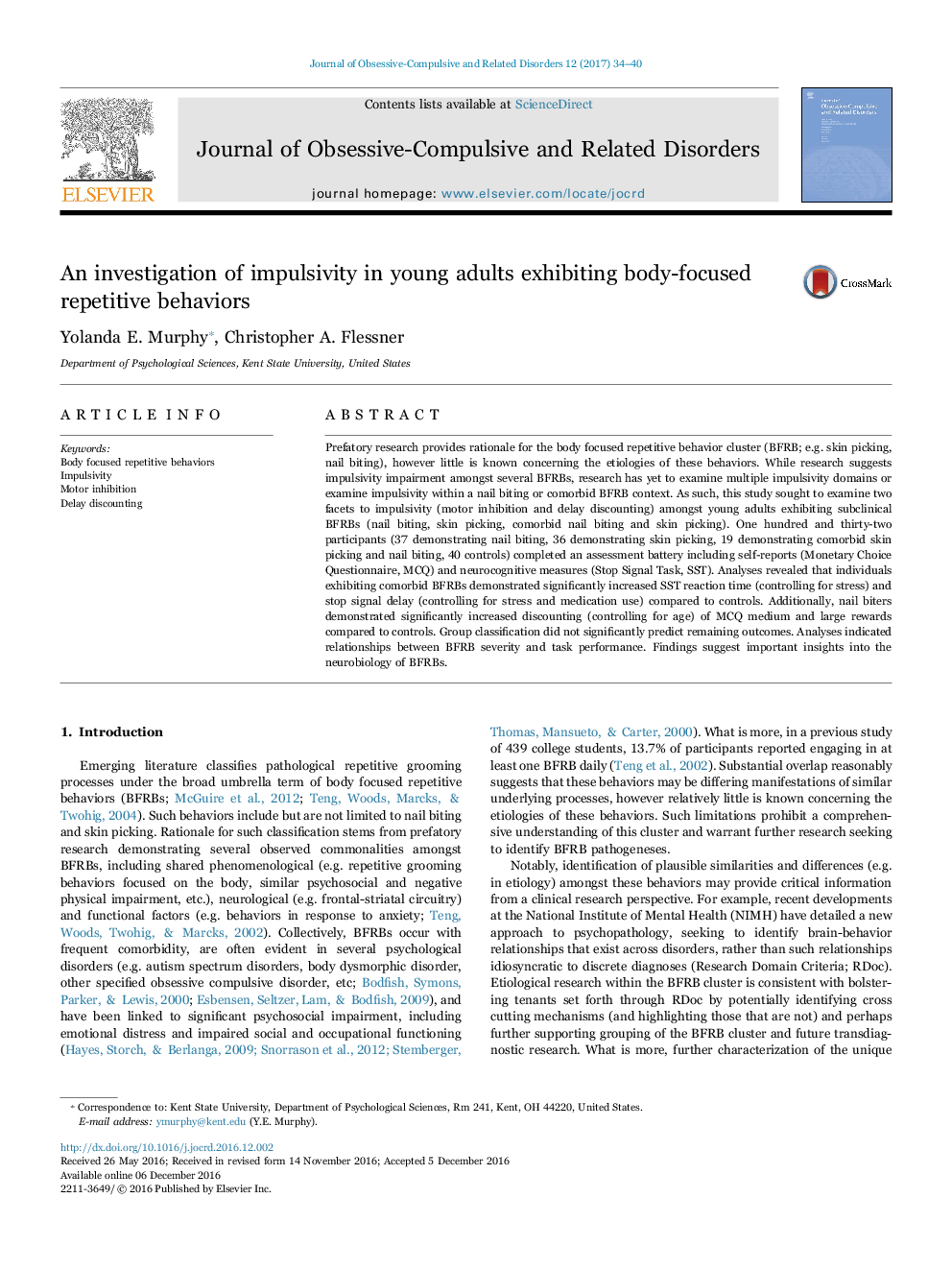ترجمه فارسی عنوان مقاله
تحقیق در مورد تحریک پذیری در جوانان نشان دادن رفتارهای تکراری متمرکز بر بدن
عنوان انگلیسی
An investigation of impulsivity in young adults exhibiting body-focused repetitive behaviors
| کد مقاله | سال انتشار | تعداد صفحات مقاله انگلیسی |
|---|---|---|
| 133441 | 2017 | 7 صفحه PDF |
منبع

Publisher : Elsevier - Science Direct (الزویر - ساینس دایرکت)
Journal : Journal of Obsessive-Compulsive and Related Disorders, Volume 12, January 2017, Pages 34-40
ترجمه کلمات کلیدی
رفتارهای تکراری بدن متمرکز، تکانشی، مهار موتور، تخفیف تاخیر،
کلمات کلیدی انگلیسی
Body focused repetitive behaviors; Impulsivity; Motor inhibition; Delay discounting;

